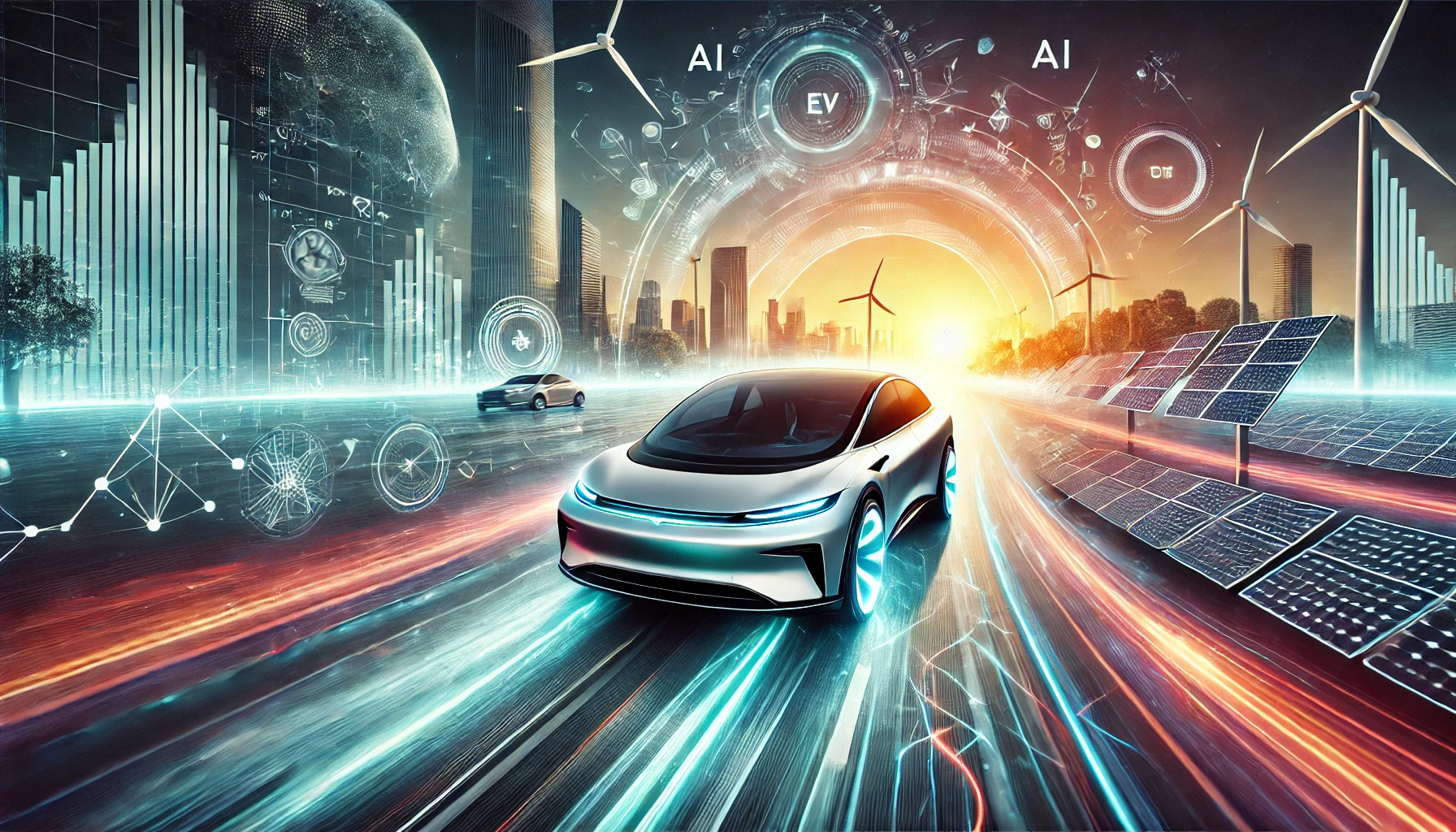The Race to Electrification: How EV Startups Are Disrupting Traditional Automakers

Introduction: The Electric Revolution
In the last decade, the automotive industry has witnessed a seismic shift, with electric vehicle (EV) startups such as Rivian and Lucid Motors shaking the foundations of traditional automakers. These up-and-coming companies are not just riding the wave of sustainability; they are driving it. By leveraging cutting-edge technologies, flexible manufacturing, and a consumer-centric approach, EV startups are rapidly disrupting legacy car manufacturers. But how did this electrification race accelerate, and what are these new players doing differently? Buckle up as we delve into the tech-driven disruption of the auto industry.
Breaking the Mold: Innovation at the Core
Traditional automakers like Ford, General Motors, and Toyota have been in the business for decades, perfecting internal combustion engines (ICE) and focusing on mass production efficiency. In contrast, EV startups are prioritizing technological innovation. Take Rivian, for example. Not only did Rivian develop a high-performance electric truck, but they also integrated AI and over-the-air (OTA) updates to continuously improve vehicle performance. Lucid Motors, on the other hand, stunned the industry with the Lucid Air’s record-breaking range of over 500 miles on a single charge, leveraging their proprietary battery technology. These innovations, combined with sleek designs and modern interfaces, have attracted tech-savvy consumers.
The Data-Driven Approach to Disruption
What separates EV startups from traditional automakers isn’t just the move to electric; it's the data-centric approach that powers these companies. Startups like Rivian and Lucid are integrating artificial intelligence, machine learning, and big data analytics into the core of their operations. For example, Rivian uses real-time data from its fleet to predict vehicle maintenance needs, optimizing performance and extending the lifespan of their cars. According to a 2023 study by McKinsey, data-driven approaches to vehicle design and development can reduce costs by up to 30%. Traditional automakers are only now catching up, but their heavy reliance on legacy systems puts them at a disadvantage.
Manufacturing Flexibility and Speed
One of the major disruptions caused by EV startups is their ability to rapidly adapt to market changes. While traditional automakers rely on extensive supply chains and long lead times for new model launches, EV startups are more agile. For instance, Tesla’s Gigafactories are renowned for being able to ramp up production at lightning speed, and now Rivian is following suit. In fact, Rivian’s assembly plant in Normal, Illinois, is expected to produce 150,000 vehicles per year by 2025. This speed and flexibility come from vertical integration and a leaner manufacturing process, where startups control both hardware and software. In comparison, traditional automakers are weighed down by bureaucratic inertia.
The Numbers Speak: Market Penetration and Growth
The success of EV startups is not just a matter of innovation and agility; the market response has been overwhelmingly positive. According to Statista, EV sales in the U.S. increased by 40% in 2023, with startups like Rivian and Lucid capturing 12% of the total market. These figures are bolstered by strategic investments in charging infrastructure, autonomous driving features, and an emphasis on sustainability. Compare this with legacy automakers like Ford and GM, whose EV divisions are still a small fraction of their overall business. The rise of EV startups has sparked a market frenzy, with traditional automakers scrambling to secure partnerships and increase their EV output.
Why Traditional Automakers Are Struggling
Despite their experience and resources, traditional automakers are struggling to keep pace with the disruption. The main reason? Legacy manufacturers are burdened by outdated infrastructure and an internal focus on ICE vehicles. Shifting these massive operations toward EVs requires billions of dollars in retooling factories and retraining workers. Additionally, traditional automakers often face cultural resistance to change, where the focus remains on short-term profitability rather than long-term innovation. In contrast, EV startups benefit from a culture of risk-taking and a willingness to push technological boundaries.
The Sustainability Edge: Meeting Consumer Demands
The modern consumer is not just looking for a vehicle; they are looking for a lifestyle that aligns with their values, particularly around sustainability. EV startups have capitalized on this by building sustainability into their DNA. Lucid Motors, for example, prides itself on its use of ethically sourced materials and a transparent supply chain. Meanwhile, Rivian has invested heavily in the development of electric delivery trucks for Amazon, aiming to reduce the carbon footprint of last-mile deliveries. This focus on sustainability resonates with younger consumers, many of whom are willing to pay a premium for eco-friendly vehicles. According to a 2022 survey by Deloitte, 63% of Gen Z consumers prefer sustainable brands, a trend that is fueling the growth of EV startups.
The Road Ahead: Will Traditional Automakers Catch Up?
While the rise of EV startups has undoubtedly disrupted the automotive industry, the future remains uncertain. Traditional automakers are beginning to fight back, with Ford launching its own electric F-150 Lightning and General Motors accelerating its transition to all-electric fleets by 2035. The question is whether these legacy brands can truly compete with the innovative powerhouses like Rivian and Lucid. As more governments worldwide implement stricter emissions regulations and ban gasoline-powered cars, the pressure is on traditional automakers to evolve—or face irrelevance.
Conclusion: A New Era for Automobiles
The race to electrification is not just about building electric cars; it's about rethinking the entire automotive ecosystem. EV startups like Rivian and Lucid Motors are proving that agility, innovation, and a consumer-first approach can disrupt even the most established industries. As these companies continue to push boundaries in battery technology, AI integration, and sustainability, traditional automakers will need to either adapt or risk being left behind. What do you think the future holds for the automotive industry? Will legacy brands regain their dominance, or will EV startups lead the charge into a new era?



